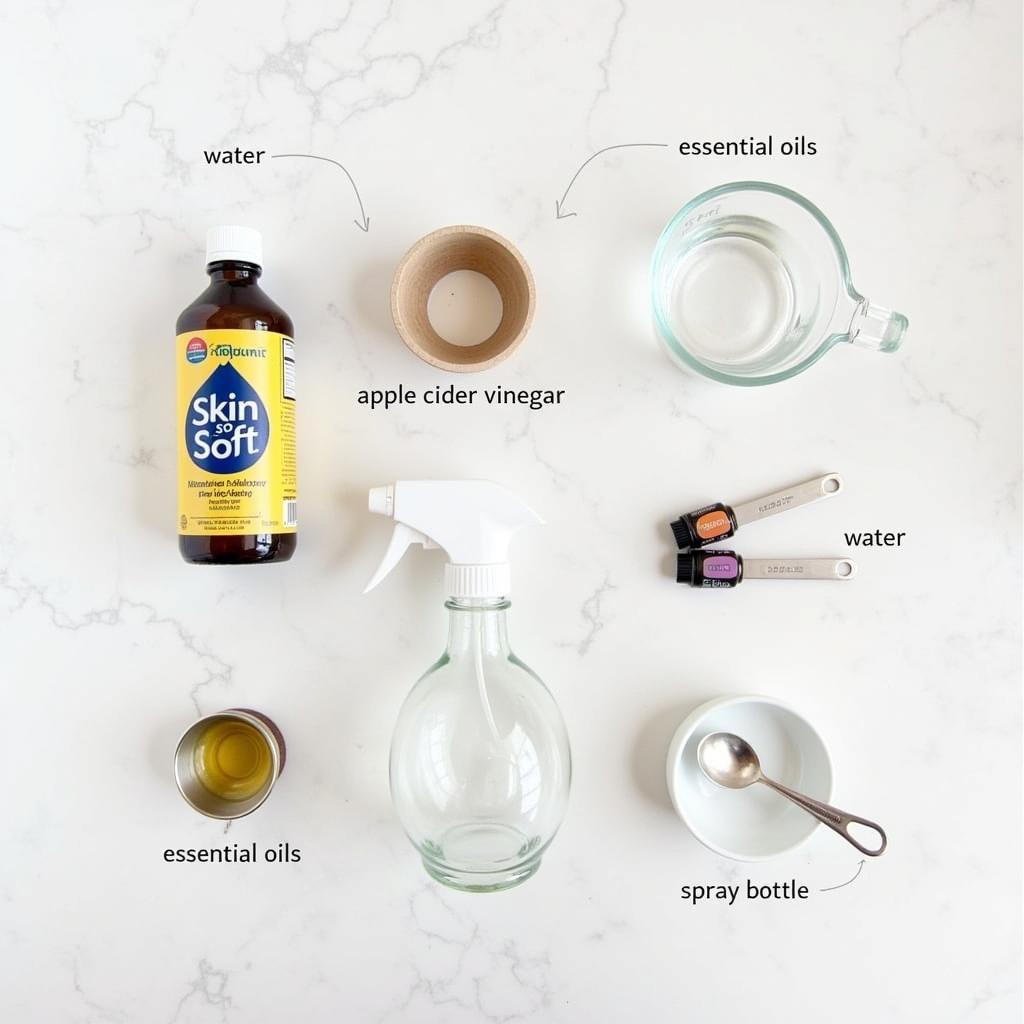Keeping pesky flies away from your horse is crucial for their comfort and health. A Horse Fly Spray Recipe With Skin So Soft is a popular DIY solution that many horse owners swear by. This article will delve into the effectiveness of Skin So Soft, explore various recipes, and offer essential safety considerations for protecting your equine companion. After the first few paragraphs you will find a link to our best horse mane conditioner article.
Many horse owners are always searching for effective and affordable fly control solutions. A homemade horse fly spray with Skin So Soft is a frequently discussed option. But does it work? And what’s the best recipe? We’ll explore these questions and more, providing you with the information you need to make informed decisions about your horse’s fly protection. Check out our helpful tips for fly boots horses.
Understanding Skin So Soft and Its Effectiveness
Skin So Soft, a popular Avon product, has gained a reputation as a horse fly repellent. Its main ingredient, DEET, is known for its insect-repelling properties. However, the concentration of DEET in Skin So Soft is significantly lower than in dedicated insect repellents, raising questions about its true efficacy.
While some horse owners report success using Skin So Soft, scientific evidence supporting its effectiveness against flies is limited. It’s crucial to consider potential risks and alternative fly control methods to ensure your horse’s well-being.
Horse Fly Spray Recipes with Skin So Soft
Several DIY horse fly spray recipes incorporate Skin So Soft. Here are a few variations:
- Basic Recipe: Combine equal parts Skin So Soft and water in a spray bottle.
- Enhanced Recipe: Mix Skin So Soft, apple cider vinegar, and water in a spray bottle. The vinegar is believed to further deter flies.
- Herbal Recipe: Add a few drops of essential oils like citronella, lavender, or tea tree oil to the Skin So Soft and water mixture.
Before applying any homemade spray, test it on a small area of your horse’s skin to check for any adverse reactions. Always consult your veterinarian for personalized advice. Learn more about various homemade bug repellent for horses on our website.
 Ingredients for Homemade Horse Fly Spray
Ingredients for Homemade Horse Fly Spray
Safety Considerations and Alternatives
While Skin So Soft is generally considered safe for horses, it’s essential to use it with caution. Avoid applying it to broken or irritated skin. Some horses may be sensitive to certain ingredients, so always monitor for any signs of discomfort or allergic reactions.
Are there safer alternatives to Skin So Soft?
Yes, there are many commercially available horse fly sprays specifically formulated for equine use. These sprays typically contain ingredients like pyrethrin, permethrin, or DEET in concentrations proven effective against flies. Choosing a product designed for horses ensures safety and efficacy. For information on homemade horse fly spray check this link.
Can I use essential oils alone as a fly repellent?
While some essential oils have insect-repelling properties, using them alone may not provide adequate protection. Furthermore, some essential oils can be toxic to horses if ingested or applied in high concentrations. Always dilute essential oils properly and consult your veterinarian before using them on your horse. Find out more about homemade fly spray for horses with skin so soft.
Conclusion
A horse fly spray recipe with skin so soft can be a tempting DIY solution, but its effectiveness is debatable. Prioritizing your horse’s safety and well-being is paramount. While Skin So Soft might offer some repellent properties, commercially available horse fly sprays and other proven methods provide more reliable and consistent protection. Consulting with your veterinarian is always recommended for tailored advice on the best fly control strategies for your horse.
FAQ
- Is Skin So Soft safe for all horses? While generally safe, some horses may have sensitivities. Always test on a small area first.
- What are the best essential oils for horse fly spray? Citronella, lavender, and tea tree oil are popular choices.
- How often should I apply fly spray to my horse? Follow the product instructions or consult your veterinarian.
- What other fly control methods are available? Fly masks, fly sheets, and stable management practices can help.
- Can I make my own fly spray without Skin So Soft? Yes, there are other DIY recipes available, but always prioritize safety.
- What should I do if my horse has an allergic reaction to fly spray? Contact your veterinarian immediately.
- Is Skin So Soft effective against all types of flies? Its effectiveness varies depending on the fly species.
Common Scenarios and Questions
-
Scenario: My horse is constantly stomping and swishing his tail due to flies.
-
Question: What’s the most effective way to control flies around my horse, especially during peak season?
-
Scenario: I’m worried about using chemical fly sprays on my sensitive horse.
-
Question: Are there natural fly repellent options that are safe and effective for sensitive skin?
-
Scenario: I’m looking for a cost-effective fly control solution.
-
Question: Can you recommend affordable fly sprays or other methods that won’t break the bank?
Further Reading
For more helpful tips and advice on horse care, check out these articles on our website:
- Best Horse Mane Conditioner: best horse mane conditioner
- Homemade Horse Fly Spray: horse fly spray homemade
Need further assistance? Contact us at Phone: 0772127271, Email: [email protected] or visit us at QGM2+WX2, Vị Trung, Vị Thuỷ, Hậu Giang, Việt Nam. We have a 24/7 customer support team.